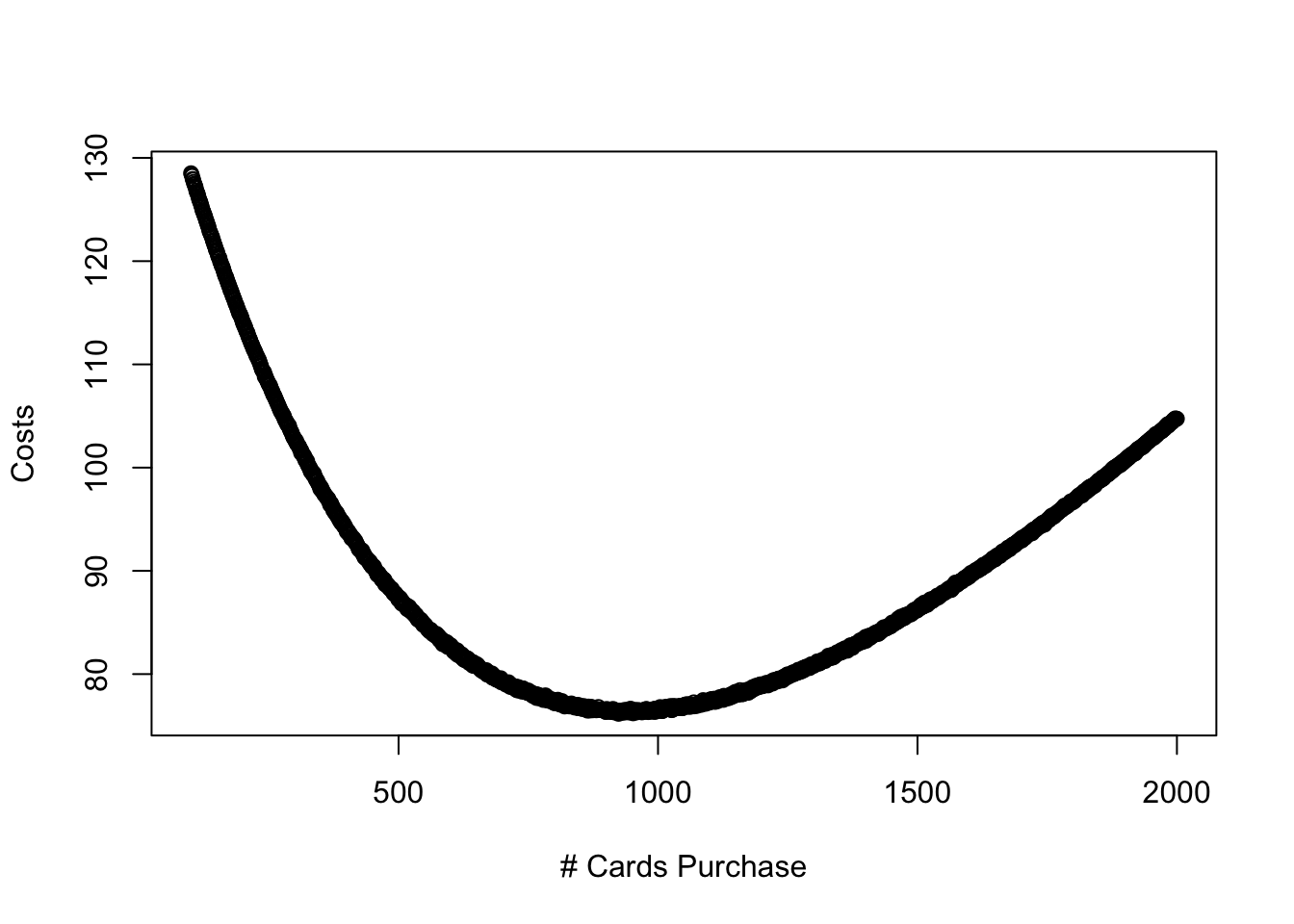Puzzle: Pokemon Card Game
Mar 10, 2019 #monte-carlo
Imagine a Pokemon card game consists of (N = 586) unique cards. How many are the odds of collecting them all if we purchase many?
library(magrittr)
library(purrr)
# A set of cards consists of N cards
N = 586
# is it a complete set?
complete_set <- function(n, m) {
deck = sample(n, size = m, replace = TRUE)
ifelse(length(unique(deck)) == n, TRUE, FALSE)
}
# what are the odds of getting full set if you purchase many cards?
sims <- replicate(1000, complete_set(N, 3000))
table(sims) %>% prop.table()## sims
## FALSE TRUE
## 0.972 0.028If each random card costs 5 cents, and you can purchase any unique card for 25 cents, what is the optimal strategy to collecting the full set?
# each card costs x cents
# each unique card costs y cents
random_cost = .05
unique_cost = .25
card_purchase <- function(n, full_set, rand, uniq) {
# purchase n cards from full set
deck = sample(full_set, size = n, replace = TRUE)
# topup if not full set
n * rand + (full_set - length(unique(deck))) * uniq
}
card_purchase(3000, N, random_cost, unique_cost)## [1] 150.75# range of simulation, from x to y cards
purchases = 100:2000
sim_costs <- map_dbl(purchases, ~ card_purchase(.x, N, random_cost, unique_cost))
plot(purchases, sim_costs, xlab = "# Cards Purchase", ylab = "Costs")
# to reduce uncertainty
sim_costs <- map_dbl(purchases, ~ {
replicate(300, expr = card_purchase(.x, N, random_cost, unique_cost)) %>%
# average of trials
mean()
})
names(sim_costs) <- purchases
plot(purchases, sim_costs, xlab = "# Cards Purchase", ylab = "Costs")
# optimal purchase
opt <- which.min(sim_costs)
list(
num_cards = as.numeric(names(opt)),
cost = sim_costs[[opt]]
)## $num_cards
## [1] 924
##
## $cost
## [1] 76.14667